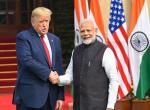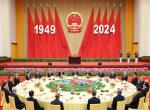The victory of the centre of left wing Paraktan Harapan alliance in Malaysia has been of great interest in Southeast Asia and even beyond, into the Indo-Pacific. Not only because the 57 years reign of the United Malays National Organisation (UMNO)-led Barison National coalition came to an end, but the victory saw the return of Mahathir Mohammed to Malaysian politics. The aftermath of the election victory has seen Prime Minister Mohamed quickly hold Najib Razak accountable for the 1 Malaysia Development Berhad (1MDB) scandal, pass a royal pardon for Anwar Ibrahim and assuage concerns from China that agreements signed by Beijing-friendly Razak would remain unaffected. The dynamic political shift in Malaysia is of particular interest to India as the Malaysian demographics possesses eight percent of the Indian diaspora and is a source of significant investment from Southeast Asia.
Mahathir Mohamed ruled over Malaysia, as a part of the UMNO from 1981 to 2003 and is credited with the modernisation of Malaysia. During the 1997 financial crisis, Malaysia narrowly avoided the fates of Indonesia and Thailand by imposing capital control measures, pinning the ringgit at 3.8 to a dollar to resist speculative pressures and completely rejecting the steep International Monetary Funds (IMF) bailouts. Anwar Ibrahim, the heir imminent for leadership, was a staunch supporter of the liberalisation of Malaysia’s economy, which led to the bitter rivalry for two decades that has currently ceased with the Paraktan Harapan alliance. Mahathir Mohamed’s reign was strongly anti-western as he fervently called for Asian values, calling for the establishment of an East Asian Community of the Association of Southeast Asian Nations (ASEAN) Plus three countries, but which pointedly excluded the interests of Western countries, such as Australia, for them to join.
Despite the disagreements between Mahathir and his protégés Anwar Ibrahim, and even Najib Razak, there were convergences between the leaders on the broad contours of foreign policy of Malaysia, and was usually largely unaffected by domestic political frictions. This is reflected in Mahathir’s political statements assuring China that the agreements signed with Malaysia would continue undeterred, provided that the projects hold intrinsic value to Malaysia. Recent reports show that Prime Minister Mohammed, is evaluating several China-based infrastructure projects in interests of disassociating the image of Malaysia being the centre of the Belt and Road Initiative, in order to ensure national autonomy which the leader has been well-known to stress for in the past. In a scenario where the projects are cancelled, the investment growth in Malaysia is bound to be impacted, with a slowdown of the Gross Domestic Product (GDP) growth. While the first impression of this move seems to be that of an anti-China projection from PM Mahathir, the reality is far from it. The appointment of the current finance minister Mr. Lim Guan Eng, a Malaysian of Chinese descent after 44 years and official statements have made it clear that economic engagements with China are regarded integral, though national interests of reducing debt is also a primary priority.
Domestically, Mahathir was lauded for his efforts to introduce affirmative action for the indigenous bhumiputeras (sons of the soil) that he outlined in his book the ‘Dilema Melayu’ (The Malay Dilemma). The bhumiputera policy has led to an established Malay bourgeoisie, where despite initial perceptions of disadvantage by Malaysians of Chinese and Indian descent, the Malaysian Chinese Association and Malaysian Indian Congress, both exclusively identity based parties, have articulated and preserved diaspora interests. The National Economic Policy introduced in 1971 sought to promote economic development of its population. However there was a focus on affirmative action for the indigenous Malays over the non-indigenous people in Sabah and Sarawak, and the ethnic Chinese and Indians. The UMNO style of ‘Malay for Malays’, has traditionally been challenged by the Islamic Party ‘Partai Islam Se-Malaysia’ (PAS). PAS that seeks a more theocratic vision of statehood, and the Democratic Action Party (DAP) that has a model of secularist nationhood. The material advancement put forth by the DAP is not race-specific, while the PAS economic program is vague and oriented towards an Islamic restructuring and reducing dependency towards the West.
The trend of voting of the Malaysian Indians have shifted away from the Malaysian Indian Congress party, which received only two seats and the Malaysian Chinese Association only one seat for the Barisan National. The remaining voter base has shifted to the Paraktan Harapan, displaying a trend to vote less on ethnic lines and more in interest of issues. The leadership of Mahathir Mohamed and his party Malaysian United Indigenous Party (MUIP) in the Paraktan Harapan alliance is bound to bring fresh spin on the style of multiculturalism present in Malaysia, either in formulating an accommodative synthesis of syncretic Islam with a secularist framework, or following on the footsteps of the UMNO-established Malay-first policy.
Bilateral Relations and the Diaspora
As the former Ambassador to Malaysia T.S. Tirumurthi claims when conceptualising what India can do for its diaspora established in Malaysia, it is important to remember that there are different types of diaspora. For the Persons of Indian Origin (PIO), India has established socio-cultural and civilisational links with the population. While on occasion disputes have risen on the treatment of Indian origin Malaysians, New Delhi can do little except protest misconduct, as the PIOs are naturalised citizens of Malaysia. The case differs when Indian citizens migrate as part of skilled migration, where India is then able to provide the protection assured in citizenship in cases of distress. A bilateral Memorandum of Understanding (MoU) was signed in 2009 for the welfare and employment of Indian workers through an institutional framework, to address pertinent concerns of illegal immigration and human trafficking.
Bilateral relations between India and Malaysia have steadily improved over the years. The first MOU on defence cooperation, as signed in 1993, stalled over the years till 2006, when regular exchanges of Defence Ministers began. The “Harimau Shakti” joint exercises are held annually, even as there is scope for improvement. India also partakes in defence diplomacy with Malaysia in the form of Air Force training for the SU-30SKM aircraft. In the MH 370 disappearance, India extended necessary Air Force and Naval assistance to undertake Search and Rescue operations. The scope of Malaysian investments in India have also increased, with Malaysian infrastructure having the largest presence in India outside of the country, amounting to near US$ 2.84 billion. While the ‘Act East’ policy of 2014, has improved relations with Malaysia in socio-cultural linkages and education exchanges, the primary developments in India-Malaysia cooperation have been conducted through the ASEAN forum and ASEAN-based institutions.
Mahathir’s rise has prompted musings on whether the engagement with India will differ from Najib Razak’s rule, particularly as Mahathir has emphasised the need to reduce national debt and reduce economic dependency on China. The concern over the predominance of Chinese-based investments in Malaysia does not echo similarly in the case of India, as New Delhi’s involvement in Southeast Asia is regarded as benign, with the level of investments have been modest in comparison. In many ways, Mahathir Mohammed is likely to follow the upward trend of bilateral engagement with India that was initiated under Najib Razak’s rule, though Prime Minister Modi’s scheduled visit to Malaysia will further unravel the areas of cooperation to be emphasised.
References
- Arfa Yunus, “Tun M says he appointed LGE as finance minister because he understands the job,” New Straits Times 17 May 2018 at https://www.nst.com.my/news/nation/2018/05/373870/tun-m-says-he-appointed-lge-finance-minister-because-he-understands-job accessed (27 May 2018).
- Edward White, “Losing China-backed projects positive for Malaysia: report,” Financial Times 28 May 2018 at https://www.ft.com/content/f812b99a-6227-11e8-90c2-9563a0613e56 (accessed 28 May, 2018).
- Hwok-Aun Lee, ‘Affirmative Action in Malaysia: Education and Employment Outcomes since the 1990s’ Journal of Contemporary Asia 42(2), May 2012, pp. 230–254.
- “India-Malaysia Relations,” Ministry of External Affairs, India at https://www.mea.gov.in/Portal/ForeignRelation/Malaysia_Jan_2017.pdf (accessed 27 May 2018).
- Vejai Balasubramaniam, ‘A Divided Nation: Malay Political Dominance, Bumiputera Material Advancement and National Identity in Malaysia’ National Identities, 9(1), March 2007, pp. 35-48.
(The paper does not necessarily represent the organisational stance. The author certifies that the article/paper is original in content, unpublished and it has not been submitted for publication/web upload elsewhere, and that the facts and figures quoted are duly referenced, as needed, and are believed to be correct).
(The paper does not necessarily represent the organisational stance... More >>
Image Source: https://timedotcom.files.wordpress.com/2018/05/gettyimages-955483548.jpg











Post new comment